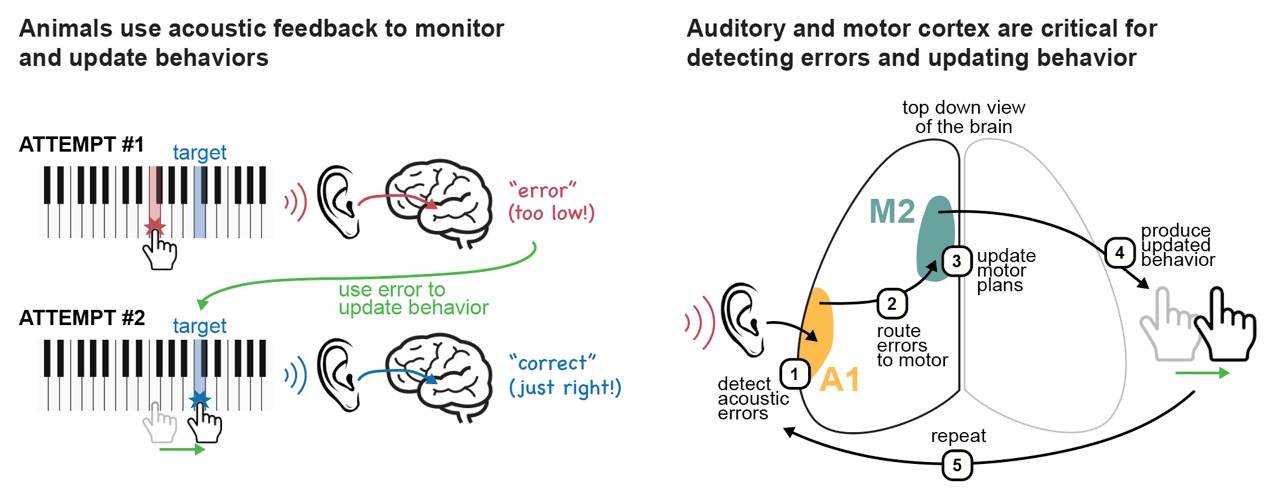You are here
Detecting errors and learning from mistakes
Speakers
Abstract
Making mistakes is an important component of learning and performing skilled behaviors like speech or music. Equally important is knowing how to react to mistakes in order to improve with practice. However, the neural circuits that process mistake-related feedback and drive behavioral corrections in mammals remain poorly understood. Here, we identify how the mouse auditory cortex encodes error- and learning-related signals during skilled acoustic behavior, and how these signals drive adaptive motor cortical changes to improve performance. We developed a skilled, sound-guided behavior that requires mice to use real-time acoustic feedback to guide their ongoing forelimb movements and is auditory cortex dependent. Auditory cortex neurons encode error signals associated with distinct types of behavioral mistakes and the activity of error-sensitive neurons predicts both across-trial and within-trial changes in behavior. Skilled acoustic behavior also requires the secondary motor cortex (M2), a motor planning and execution region that receives acoustic input from auditory cortex. Following behavioral mistakes, persistent activity in M2 encodes specific acoustic errors, and these error signals modulate M2 dynamics within a low-dimensional space that governs motor planning. These data reveal a learned coordinate transformation that converts specific acoustic errors into adaptive adjustments in motor planning and behavior. Collectively, these results uncover a cortical circuit that detects errors and facilitates learning from mistakes during skilled behavior in mammals


